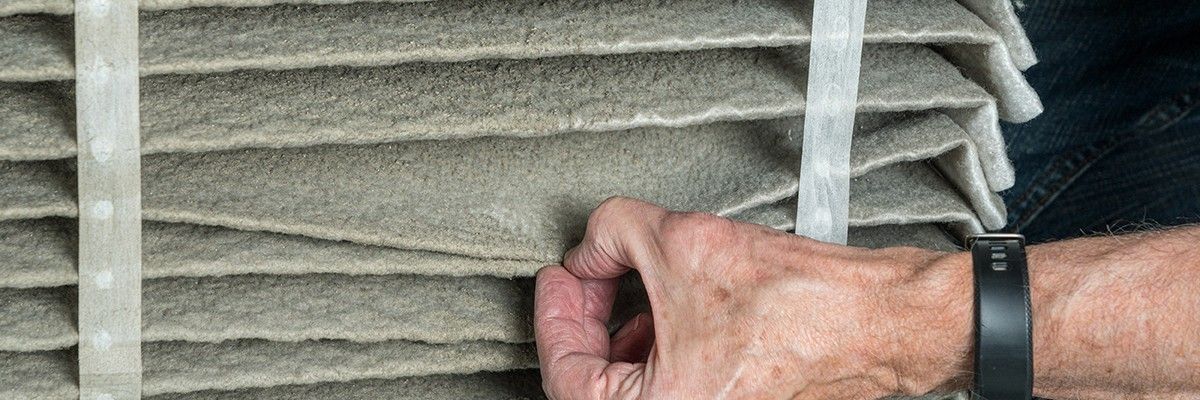Using high-quality, properly fitting air filters, and replacing them often, is one of the cheapest and easiest things you can do to extend the life of your HVAC system.
High-quality air filters cost more, but they can easily pay for themselves by improving indoor air quality (IAQ), reducing the likelihood of expensive repairs, and improving your system’s efficiency and performance. In fact, it’s estimated that a clean, high-quality air filter can reduce your air conditioner’s energy consumption by as much as 16 percent!
The basic function of any air filter is to trap dust, pollen, mold spores, and other airborne particles in its fibers. As filters age and deteriorate, they lose the ability to trap new particles, and they can release those same fibers and other debris into your system.
Higher-quality air filters will trap more particles, this is particularly important if you suffer from allergies or a respiratory condition like asthma or COPD, but a higher MERV rating is no substitute for a properly fitting filter that is changed regularly, and you can overdo it. A higher MERV rating means less airflow, which can damage your HVAC system.
When any air filter becomes clogged, air will bypass the filter and contaminate the evaporator coil, thereby reducing the coil’s heat absorbing capacity. In other words, your air conditioning system will have to work harder to cool your home, resulting in unnecessary wear and tear, higher energy bills, and lower indoor air quality.
Exactly how often you should clean or replace your filter depends on your environment and the type of filter, most residential filters aren’t designed to be cleaned. If you smoke in your home, or you have long-haired pets, you may want to change your filter more often.
Like with most things, it depends…
The main job of any air filter is to trap dust, pollen, pet dander, and other airborne particles in its fibers. This keeps the air you breathe, and your system’s evaporator coil, clean.
Higher-quality filters will trap more of those nasty particles, which is particularly important for people who suffer from allergies or respiratory conditions like asthma, but a higher MERV rating is no substitute for a clean, properly fitting air filter, and a higher MERV rating also means smaller holes, which can restrict airflow and damage your system.
The Minimum Efficiency Reporting Value (MERV) is designed to help you balance your Indoor Air Quality (IAQ) needs with your energy efficiency needs, so don’t overdo it...
The recommended MERV rating for home use is 8 to 13.
Keep in mind that, when an air filter becomes clogged, air will bypass the filter and contaminate the evaporator coil, thereby reducing the coil’s heat absorbing capacity. In other words, your HVAC system will have to work harder to cool your home, resulting in unnecessary wear and tear, and higher energy bills.







